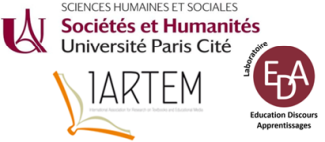The Danish elementary school is facing a reform of the current curricula and final exams. In a current plan from the government, it is pointed out, "that teaching to the test can stand in the way of a more varied teaching." (the government, 2023, p. 23), and from the government's side, experiments are being planned with new exam tests and practices. The final exam in L1 in the primary school was given 'high stake' status in Denmark as it became an entrance requirement for youth education programmes in 2015. Denmark is the only country in the Nordics that has final exams (Hovdhaugen et al, 2022).
We thus assume that the design of the tests has a great influence in L1 in secondary school - especially in ninth grade. The test in oracy constitutes half of the total of the final exam in L1. The washback effect it has on teaching is therefore assumed on the one hand to be significant, and on the other hand this is unexplored empirically. Hovdhaugen et al talk about a knowledge gap (Hovdhaugen et al, 2022, p.7). Smaller empirical studies, however, show that the teaching largely has the exam as its goal (Christensen et al., 2014) and that the teacher's didactic choices are closely linked to what the students are to be assessed on. It is therefore relevant to examine how teaching in L1 prepares for the final exam.
Research questions:
According to the learning materials that are preparing for the test, what characterizes oracy in L1? Below: Which criteria for assessment are aimed for and which understanding of oracy is expressed?
In this study, the learning materials used in the so-called test preparation teaching are examined. In L1, the test preparation teaching is supported by didactic learning materials, which have been produced with the aim of developing the students' competences within the main areas that are tested in, this will e.g. state the student's competences in arranging his presentation, using clear and understandable language, as well as the student's competences in conversing about an academic subject.
The study is carried out as a document analysis of six didactic analogue and digital learning materials. The study also includes a digital learning material developed by the National Board for Education and Quality under the Ministry of Education, which teachers and students are encouraged to use.
The analyses of the learning materials are carried out as document studies in order to map and analyze which oral competences these learning materials aim to develop, as well as what explicit and implicit view of oracy these learning materials represent. As an analytical framework, the Oracy Triangle is used as a generic model that shows the various elements of an oral text (Carlsen & Skov, 2022). The survey does not say anything about what actually happens in the class room, but points to the intended use of the learning material.
Theoretically, an oracy didactic perspective is applied to the learning materials. The starting point is national and international research as it that takes place within the research field of "oracy" and "dialogic teaching" (e.g. Mercer, 2000). There is broad agreement that interaction and dialogue support students' professional learning as a means of gaining knowledge and understanding.
The overall purpose of this study is to clarify and in the long term improve teachers' conditions for the ongoing organization of oral teaching and to make valid assessments of students' oral competences. Results of the learning material analyses are presented and discussed at the conference in the light of this.
References.
Carlsen, D., & Skov, L. I. (2022). Mundtlighedstrekanten: et didaktisk redskab. I L. I. Skov (red.), Meget mere mundtlighed (s. 39-45). Akademisk Forlag.
Christensen, T.S., Elf, N.F., Krogh, E. (2014). Skrivekulturer i folkeskolens niende klasse. Odense: Syddansk Universitet
Mercer, N. (2000). Words and Minds: How We Use Language to Think Together. Routledge.
Regeringen. (2023). Forberedt på fremtiden II. Frihed og fordybelse - et kvalitetsprogram for folkeskolen. https://www.uvm.dk/-/media/filer/uvm/aktuelt/pdf23/okt/231011-forberedt-pa%CC%8A-fremtiden2-web.pdf

 PDF version
PDF version
